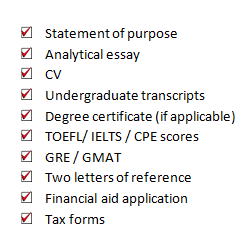It's recruiting season, and so over the past few weeks we've connected with prospective applicants, both near and afar. Nelson and I have traveled to a half dozen European cities to meet hundreds of potential candidates.
Still, as much as we like to travel, many applicants are outside of our physical reach.
Luckily, technology is a help. Some readers know that we had our first online information session in October. This month, we'll be holding a second such session. Please mark this date and time in your calendars if you are interested in learning more about SAIS Bologna:
November 22 at 7 p.m. Italy time (1800 GMT or 1 p.m. U.S. East Coast time).
If you'd like to attend, please send a message to admissions@jhubc.it and we will send you details on how to connect.
The session, expected to last about 45 minutes, is timed to accommodate applicants based in the Americas. The next session, which will be in December, will keep in mind those located in Asia.
At the start of the session we will introduce you to SAIS and the programs we offer. Alissa Tafti, a first-year student in Bologna, will be with us. Then participants will be able to ask questions, either via the audio connection or chat.
Still, as much as we like to travel, many applicants are outside of our physical reach.
Luckily, technology is a help. Some readers know that we had our first online information session in October. This month, we'll be holding a second such session. Please mark this date and time in your calendars if you are interested in learning more about SAIS Bologna:
November 22 at 7 p.m. Italy time (1800 GMT or 1 p.m. U.S. East Coast time).
If you'd like to attend, please send a message to admissions@jhubc.it and we will send you details on how to connect.
The session, expected to last about 45 minutes, is timed to accommodate applicants based in the Americas. The next session, which will be in December, will keep in mind those located in Asia.
At the start of the session we will introduce you to SAIS and the programs we offer. Alissa Tafti, a first-year student in Bologna, will be with us. Then participants will be able to ask questions, either via the audio connection or chat.
In October, we offered a separate audio connection that ran in parallel with the presentation platform. Participants told us that was awkward, and so this time we will use the audio application inside the web platform, called Adobe Connect. We'll be sure to send you clear instructions ahead of the information session.
We'll be looking for feedback after November's session, too, to help us hone our skills.
Other important dates to remember:
- OPEN DAY on Friday, December 9. You can register online here.
We'll be looking for feedback after November's session, too, to help us hone our skills.
Other important dates to remember:
- OPEN DAY on Friday, December 9. You can register online here.
- Online information session, tentatively set for Tuesday, December 13 and aligned with Asian time zones.
- February 1, 2012: deadline for applications submitted through the Bologna Admissions Office (U.S. citizens and applicants interested in starting in Washington have a January 7, 2012 deadline)
- February 1, 2012: deadline for applications submitted through the Bologna Admissions Office (U.S. citizens and applicants interested in starting in Washington have a January 7, 2012 deadline)









